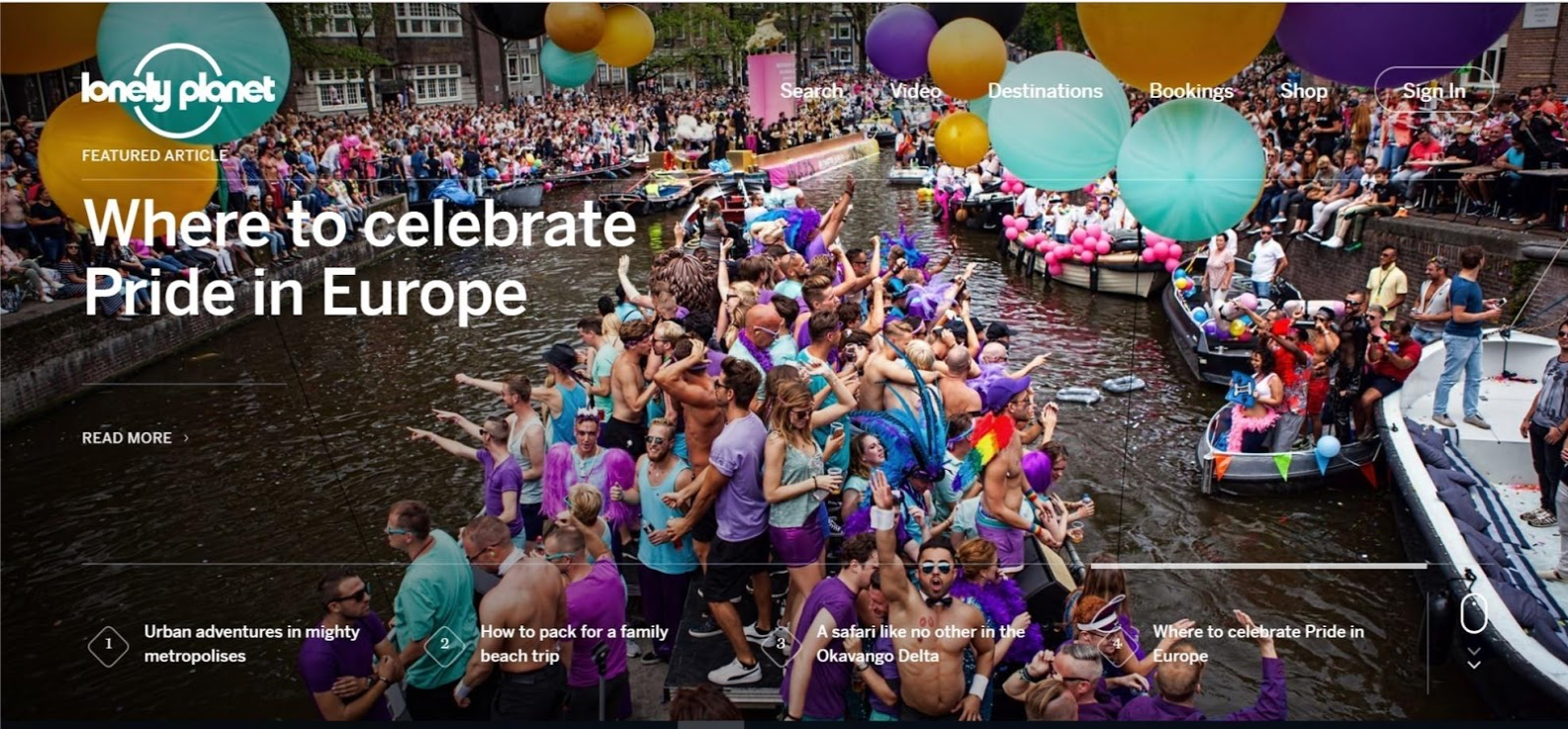Skift Take
The majority of first travel searches have no mention of a brand or destination, putting publishers of digital destination information in a uniquely influential position. Yet publishers are challenged to differentiate themselves in an arena with an overwhelming number of options.
Unlike many other parts of travel which are increasingly mobile-first or mobile-dominant, the early phase of travel planning is still laptop/desktop heavy. Travelers tend to look through a myriad of sites for inspiration on where to travel.
In our latest Skift Research report, The State of Online Travel Media 2018, we take a closer look into how travelers select their next destinations, as well as the channels they use for their research and the online travel media they read to plan for their trips. We then provide detailed profiles of 48 online travel publishers in four categories: traditional print-to-digital travel guide publishers; news sites and magazines with strong travel sections; travel booking platforms; and Google. We also examine the challenges these publishers face.
Although it’s an overcrowded space with great challenges for monetization, the innovative blending of the right content and technology will make users stick around.
Last week, we launched the latest report in our Skift Research service, The State of Online Travel Media 2018.
Below is an excerpt from our Skift Research Report. Get the full report here to stay ahead of this trend.
Preview and Buy the Full Report
From Print to Digital: Travel Guides
This section analyzes the online presence of travel guide publishers with a legacy in print.
Lonely Planet: As befits the leader of the travel guide pack, Lonely Planet has the most comprehensive and visually stimulating content with good integration of text, photos, video and offers for printed guides. For the traveler who wants to figure out the next destination, the landing page is a dream. The content is tailored to their brand promise of independent travel. Blogs nicely complement the city and country guides and provide a more current and frequently off-the-beaten path options even for popular destinations.
Lonely Planet’s Thorn Tree forum, which predates TripAdvisor, is still there after a brief period offline. However, it’s much less prominent on the site. Lonely Planet is one of the few sites that had any gay-friendly content. There were nearly 2,000 results for “wheelchair” but the information was limited, with brief mentions of accessibility. The site hands off to Viator for activities and Booking.com for hotels.

Fodors.com: Fodors.com is an inviting mix of recommendations and destination guides, text and visuals. Content is organized under destinations (with links to printed guides), trip ideas, hotels, news (the blog), forums and – unusually among similar sites reviewed – cruises. The search feature does the website no justice and would make a usability expert weep. Hashtags in each article would help discovery. Content is available in print, mobile apps and as eBooks.
The blog is compelling, with articles like the Fodor’s No List 2018, that address topics like overtourism and racial tensions. The Trip Finder feature has some fun aspects, with articles like Dark Places: The World’s Most Morbidly Fascinating Destinations. Fodor’s was the first travel guide publisher to produce LGBTQ content, according to the company, but there’s not much content there now. The metasearch handoff to hotel bookings resulted in unrelenting pop-under ads; tours and activities bookings go to Getyourguide.com. Fodor’s is owned by Internet Brands, which also owns FlyerTalk and WikiTravel.

Preview and Buy the Full Report
Subscribe now to Skift Research Reports
This is the latest in a series of research reports, analyst sessions, and data sheets aimed at analyzing the fault lines of disruption in travel. These reports are intended for the busy travel industry decision maker. Tap into the opinions and insights of our seasoned network of staffers and contributors. Over 200 hours of desk research, data collection, and/or analysis goes into each report.
After you subscribe, you will gain access to our entire vault of reports, analyst sessions, and data sheets conducted on topics ranging from technology to marketing strategy to deep-dives on key travel brands. Reports are available online in a responsive design format, or you can also buy each report a la carte at a higher price.
The Daily Newsletter
Our daily coverage of the global travel industry. Written by editors and analysts from across Skift’s brands.
Have a confidential tip for Skift? Get in touch
Tags: destinations, media, skift research
Photo credit: Travelers today still rely on desktop and laptop computers to research travel. A woman uses her laptop to do research. jeshoots / Pexels.com
